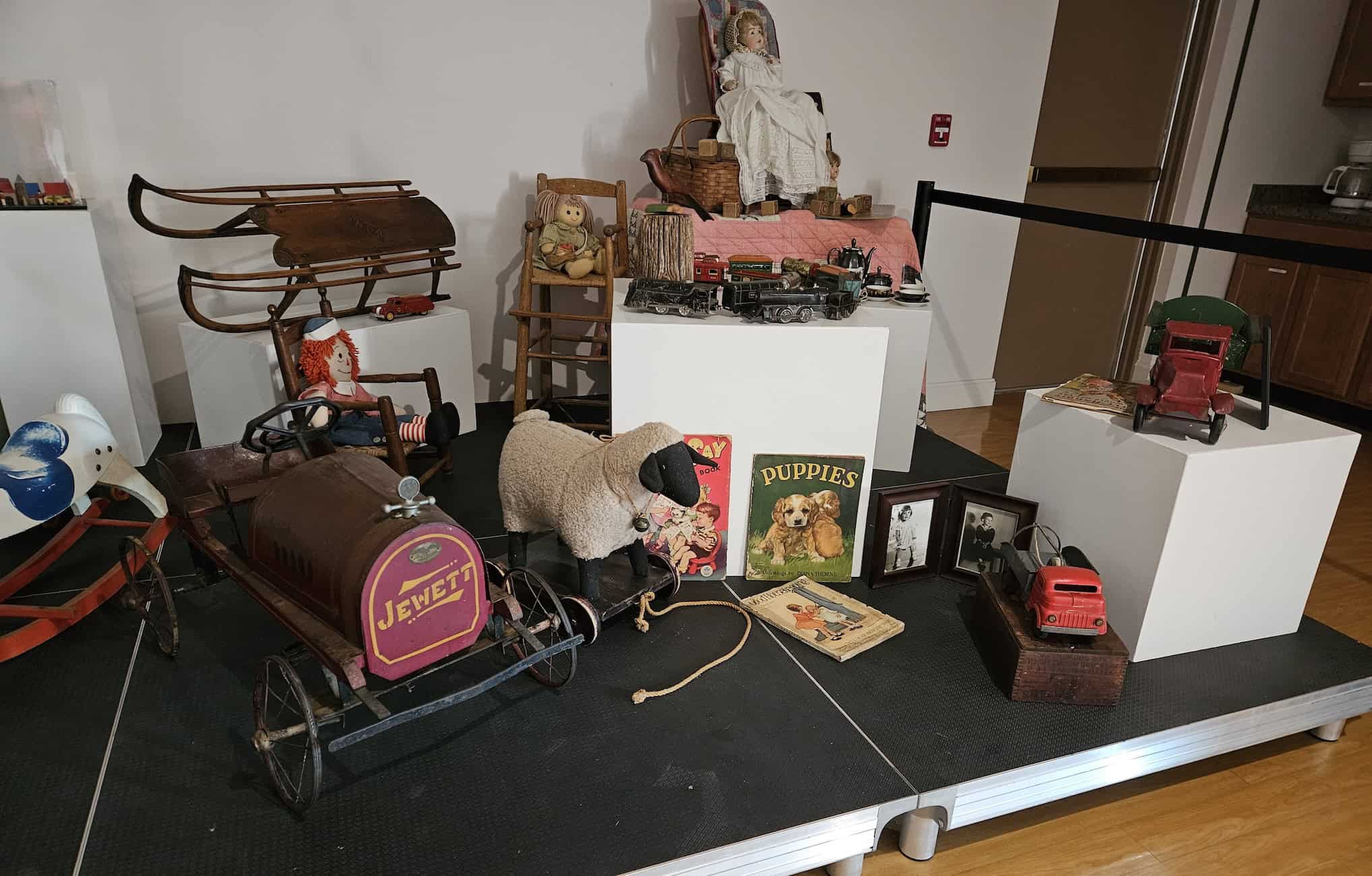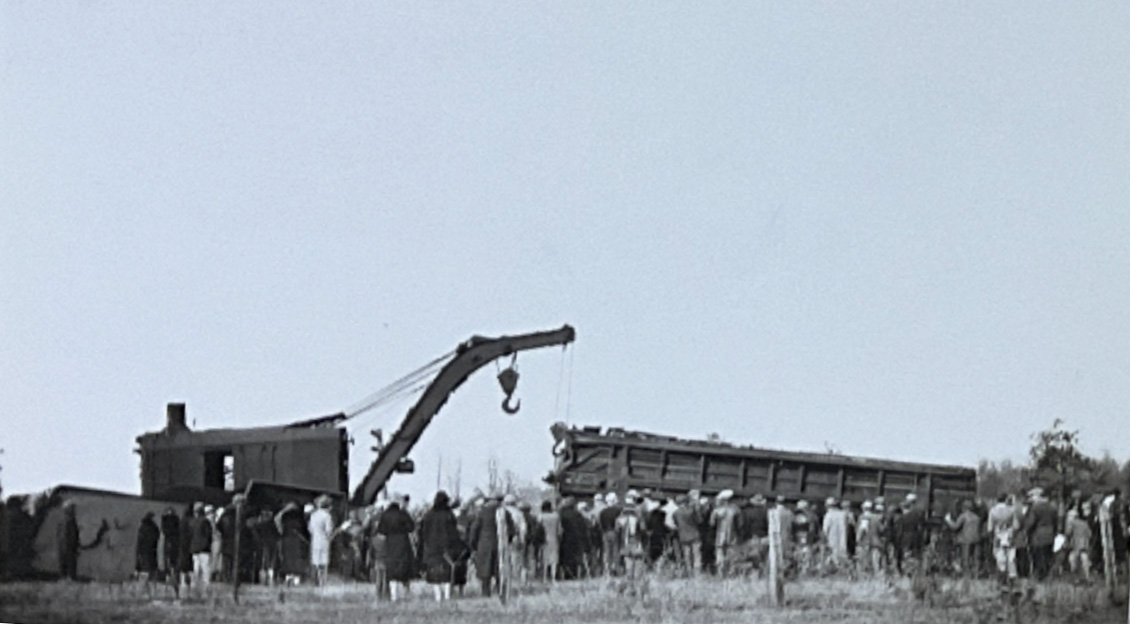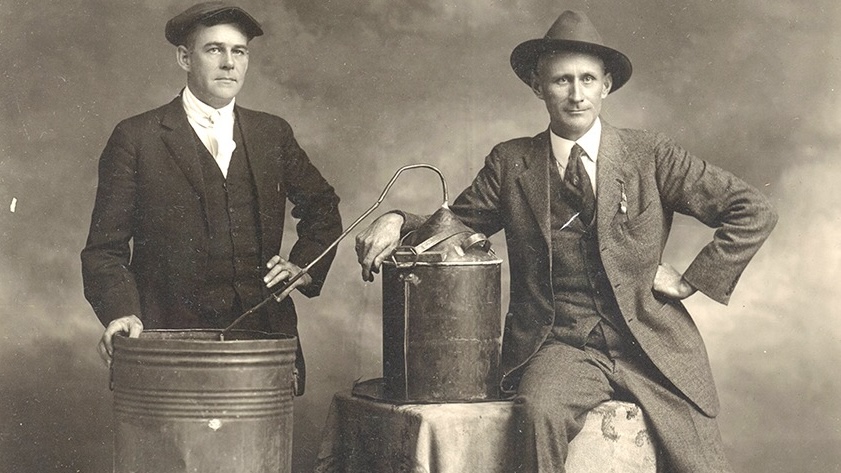Jefferson’s ideal of farmsteads from sea to sea proves alluring to thousands of Europeans
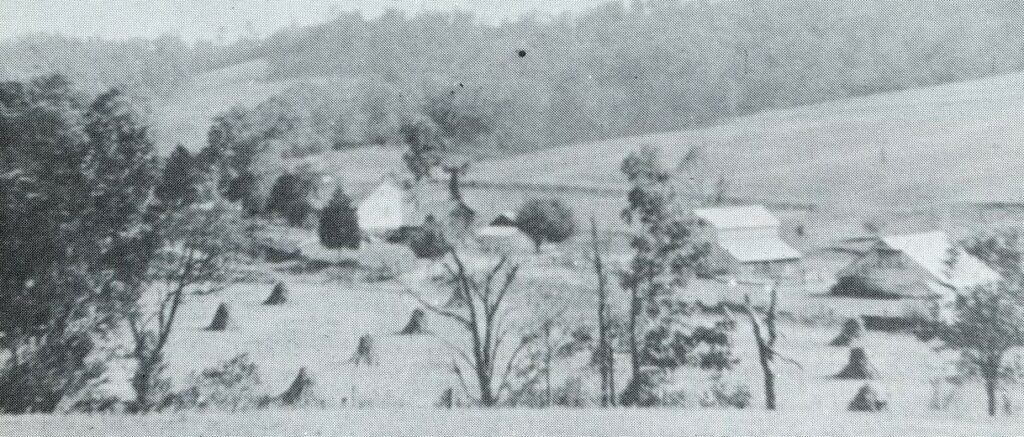
Sixteen years before he was president, Thomas Jefferson wrote in Notes on the State of Virginia, “Cultivators of the earth are the most valuable citizens. They are the most vigorous, the most independent, the most virtuous, and they are tied to their country and wedded to its liberty and interests by the most lasting bands.”
Thomas Jefferson prized rural life above all else. Every American, he thought, could live off the seemingly unlimited supply of land increasingly available to the United States.
Once he was elected President in 1801, Jefferson believed the future of America and its success rested with small farmers. Fearing cities because they concentrated power and corruption, Jefferson sought to encourage rural communities. It was America’s fertile farmland that would unlock the pursuit of happiness.
The constant push of American settlers to the West was too alluring. In 1803 Jefferson signed the Louisiana Purchase, securing millions of acres and the Mississippi River.
As Jefferson was guiding the country toward his libertarian ideal of farmsteads dotting the country, Europeans took notice. They wanted to study this new world, how it would work, and how the system of governance could scale to new towns and frontiers.
The French had long taken an interest in America’s political and economic structure. The British and Spanish were equally interested in America’s fertile land. Perhaps most famous among notable Europeans who came to study the United States in the 18th century was Frenchman Alexis de Tocqueville, who wrote “Democracy in America.”
Englishman William Blackstone, known for his work on the common law, also studied American legal systems during his time in the United States in the late 1700s. America, it seemed, was a live-action experiment never before witnessed.
Early European settlers in Warren County were mostly French fur trappers. A 1914 Warrenton Banner story on early life in Warren County notes:
The first settlement, by the whites on what is now Warren County soil, was made by French trappers at the mouth of Charrette Creek, several miles east of the present town of Marthasville. This settlement is said to have been made about the year 1768. These first invaders were sent to this region in the interest of a fur company, and all reliable data as to who they were has been lost. The tradition has come down, however, that a famous trapper, Indian Phillips, was one of the first to come. He is said to have made frequent visits to the settlers in this county until after the War of 1812.
Others who are said to have belonged to this colony of trappers were men named Choteau and Lozie. These men secured grants from the Spanish government for large tracts of land in Warren and St. Charles counties, which were used chiefly for hunting purposes.

These settlers are mostly lost to history. A flood in the late 1800s swept away the names and records of the first pioneers. The same 1914 early history of the county goes on to say:
These first settlers are said to have disposed of their holdings in the year 1812. and left the county, Flanders Callaway, son-in-law of the renowned Daniel Boone, was the purchaser. Callaway and the famous Kentucky hunter came into the county in 1795, and established a settlement, Callaway Post. several miles west of Marthasville.
This was the first American colony to be established in the present territory of Warren County. The fame of Daniel Boone, and his fearless and daring method of dealing with the Indians, soon attracted other settlers. who sought homes in the hills along the Missouri River. Flanders Callaway closed his career at the post which he established.
While European aristocrats marveled at America’s nascent tenacity and unique economic system described by Adam Smith as virtually non-existent as if by design, German aristocrats took notice of American life. German writers were more interested in the idyllic lifestyle America seemed to represent. None more so than German writer Gottfried Duden.
Indeed, many early histories of Warren County tie Daniel Boone to much of the county’s founding and taming, and rightfully so. In 1927 The Warrenton Banner published an early history of the county. They wrote in part:
In 1824-25 an educated and intelligent German named Gottfried Duden came to America and traveled extensively over our country, observing the climate, soil and productions and taking notes of our manners and customs, laws, etc. He spent nearly a year in the region of the country embraced in the counties of St. Charles, Warren and Montgomery, traveling under the guidance of Daniel Morgan Boone and others.
Perhaps the editor meant nothing of tying Duden to Boone or meant earlier pathways charted by Boone influenced Duden. Few precise dates exist of Boone’s travels across the country. However, we know Daniel Boone died at 85 on September 26, 1820, in Femme Osage Creek, Missouri, while living with his son, Nathan Boone. Daniel Boone was buried near present-day Marthasville before being exhumed and taken to Kentucky. The timing would make it impossible for Duden to have met Boone, as he arrived in Missouri several years after Boone’s death.
However, the dream, aura, and legend of Boone and the region lived on.
***
Political upheaval and social strife strain German residents
At the same time Jefferson was pursuing the Louisiana Purchase, Germany was in the throws of war, famine, and economic recession.
In 1806, Napoleon Bonaparte established the Confederation of the Rhine, which consisted of a group of German states loyal to him. This led to the dissolution of the Holy Roman Empire and the emergence of a new political order in Germany.
Additionally, the early 1800s saw the emergence of the Romantic movement in Germany, which significantly impacted literature, music, and art. This period saw the rise of writers such as Johann Wolfgang von Goethe and Friedrich Schiller and composers such as Ludwig van Beethoven and Franz Schubert.
Economically, Germany was still largely an agrarian society in 1800, though some early industrial developments took place in cities such as Berlin and Hamburg. The early 1800s also saw the emergence of the German Customs Union, a precursor to the modern German economy.
Overall, the early 1800s were a time of significant change and upheaval in Germany, as the region was impacted by war, political change, and cultural movements. For wealthy, educated, and talented men, the allure of a simpler lifestyle was irresistible to the imagination. American explorers, thinkers, and politicians provided a creative outlet for this idyllic life.
Pioneer life championed by Daniel Boone and others struck a chord with Germans, who, by the 1820s, faced poverty, land scarcity, and political oppression. The United States, they reasoned, seemed an oasis of economic opportunities and the promise of a better life.
At thirty-five years old, German writer Gottfried Duden traveled to the United States to see for himself. His seminal work, “Report of a Journey to the Western states of North America and a Multi-year Sojourn in the years 1824 through 1827” gave Germans back home the first taste of life in the new world. In it, he wrote (translated from German):
“The soil of Missouri is fertile beyond belief. The fields yield an abundant crop, and nature seems to have exhausted herself in producing the most beautiful fruits and vegetables. Peaches, apples, cherries, grapes, and all other fruits grow in abundance and with an unparalleled flavor.”
“The people of Missouri are honest, kind-hearted, and hospitable. They are always ready to lend a helping hand to the stranger, and their social customs are simple, yet refined.”
“The scenery of Missouri is breathtakingly beautiful. The rolling hills, verdant forests, and sparkling streams make for a picturesque landscape that is unmatched anywhere in the world.”
“The climate of Missouri is temperate and healthy. The air is pure and invigorating, and the water is crystal clear. The winters are mild, and the summers are long and pleasant.”
“The wildlife of Missouri is diverse and plentiful. Deer, elk, bears, and other game are abundant, and the rivers and lakes are teeming with fish.”
His writing was the first of what we now call “emigration literature and travelers’ writings.” Duden wrote in the style of personal letters addressed to readers during his travels across the country. The genre proved immensely popular with Germans. Over 150 variations of the travelog were published in Germany between 1827 and 1856.
Duden was also interested in the political and social freedoms that the United States offered, which were not available in Germany. He spent several years traveling throughout the U.S. in present-day Missouri, studying the land and documenting his experiences in his Report.
Duden’s timing, however, made him a literary pioneer when it was published in 1829. In it, Duden reminisced of the Rhineland and how the Mississippi and Missouri Rivers reminded him of home rich with fertile land and easy waterways for travel.
His writing, however, made the new world seem arguably more glamorous than it was in reality for most people. Duden evoked notions of Daniel Boone, the hearty work and simplicity of clearing seemingly endless land for farming, made little mention of the risks posed by Indian tribes, and spoke of how he was able to hire help on his farm. He gave little mention to the dangers of frontier life from attackers, drought, famine, flood, wind, cold, and the hardscrabble toil and trouble of day-to-day living.
Still, Duden’s Report ignited a rush of immigrants to the United States. Excited by the possibilities, religious freedom, and allured by the all-too-often unrealistic expectations of pioneer life, Germans boarded ships by the thousands for North America. Many were drawn specifically to the area Duden spoke of most fondly near the Mississippi-Missouri Rivers, where present-day St. Charles and Warren Counties exist today.
Pushed out of Germany from economic and political failures and pulled by the promise of Duden’s writings on life in the American middle west, they came for cheap land and brought customs. They established stores, industries, churches, schools, and established German-language newspapers, periodicals, and presses.
Later, Prince Max von Neumann, a German aristocrat most interested in America’s political and social systems, came to explore and study the region. He traveled extensively throughout the United States, too, documenting his observations in a book called “Travels through North America during the years 1825 and 1826”. His book was released roughly the same time as Duden’s Report and became popular among German intellectuals, significantly promoting German immigration to the United States.
A report in the Warrenton Banner suggests,
“The Americans rejoiced at their coming, and extended to them a hearty welcome, for they brought with them money, which the country greatly needed just at that time, bought lands, and proved to be honest, industrious, thrifty citizens.”
The report may be somewhat accurate, but the more likely reality is existing American settlers welcomed their money but resented many of their unusual customs.
The report goes on to say:
“They also introduced the mechanical arts of an old country, and manufactured many useful articles that had before been unknown to the Americans. Louis Eversman came with Duden, traveled with him, and remained when the latter returned to Europe; he was the first German settler in this part of Missouri. He married Miss MeLane, bought a farm in Warren County, raised an intelligent family, and became a prominent and influential citi[z]en.”
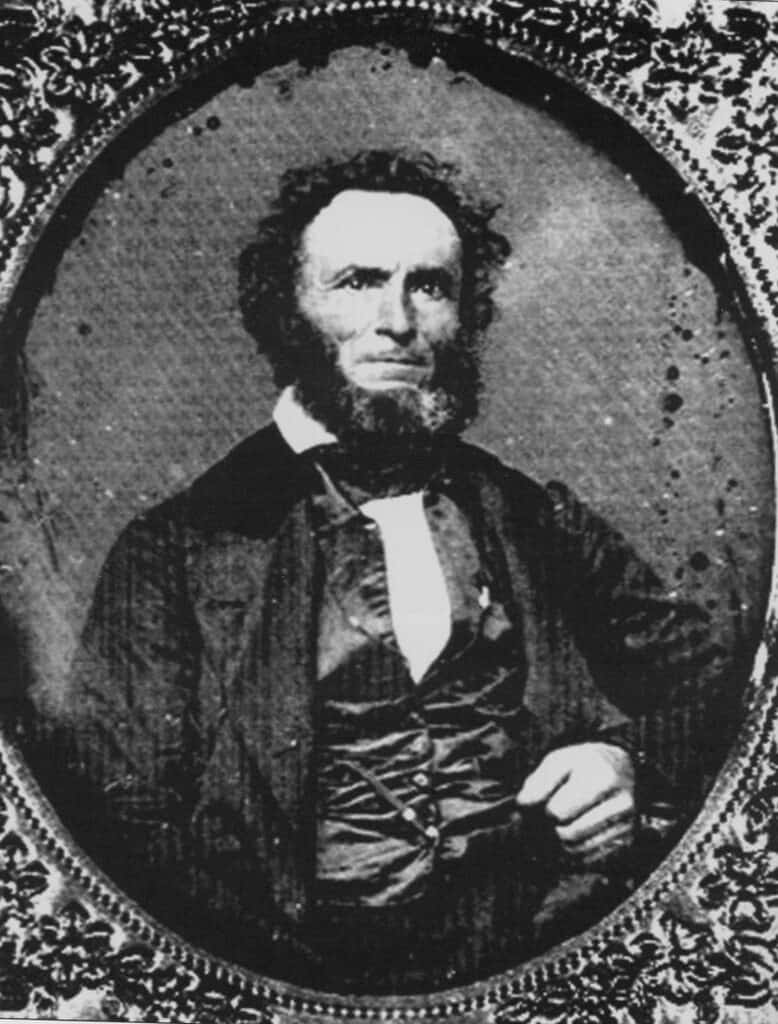
Among these settlements were large, tight-knit groups of Germans. Their close-knit, closed-off, and closely-held communities made some Americans resentful.
By 1908, Israel Zangwill, who wrote the play “The Melting Pot”, put a word to encapsulate America. He wrote:
“America is God’s Crucible, the great Melting-Pot where all the races of Europe are melting and re-forming! Here you stand, good folk, think I, when I see them at Ellis Island, here you stand in your fifty groups, with your fifty languages and histories, and your fifty blood hatreds and rivalries. But you won’t be long like that, brothers, for these are the fires of God you’ve come to – these are the fires of God. A fig for your feuds and vendettas! Germans and Frenchmen, Irishmen and Englishmen, Jews and Russians – into the crucible with you all! God is making the American.”
America was indeed a melting pot, but the point of being a melting pot, they reasoned, is you actually have to melt. The Germans maintained their language and culture, newspapers, schools, churches, and customs, which were often seen as a threat to American identity. Among the leading settlers was Frederick Meunsch, a writer, journalist, and political activist who was also a leading figure in the German-American community and played a significant role in the American abolitionist and anti-slavery movement. Muench emigrated to the United States in 1834, along with his wife and children, and settled in St. Louis, Missouri. In 1837, Muench and a group of fellow German immigrants founded the Giessen Emigration Society, which aimed to promote German emigration to the United States and assist German immigrants settling in the US.
In 1839, Muench and his family moved to Warren County, Missouri, where they established a farm and became active in the local community. Muench continued to write and publish political and social commentary in German-language newspapers, advocating for the abolition of slavery and other progressive causes. Muench’s contributions to the German-American community and his activism in support of social justice and equality have made him an important historical figure in Missouri and beyond.
Still, It would not be until World War I and II that many Germans, fearing retribution and harm because of their ancestry, shook off their language, shuttered newspapers, and sought to fully Americanize their children in public schools. But their impact and history, including architecture through numerous churches, political clout shaping the Republican party, and social mores made their mark.
Additional sources for this story came from early issues of The Warrenton Banner, many of which are available online or in-person at the Warren County Research Library.


